Prime lending opportunities are few and there is a lot of competition
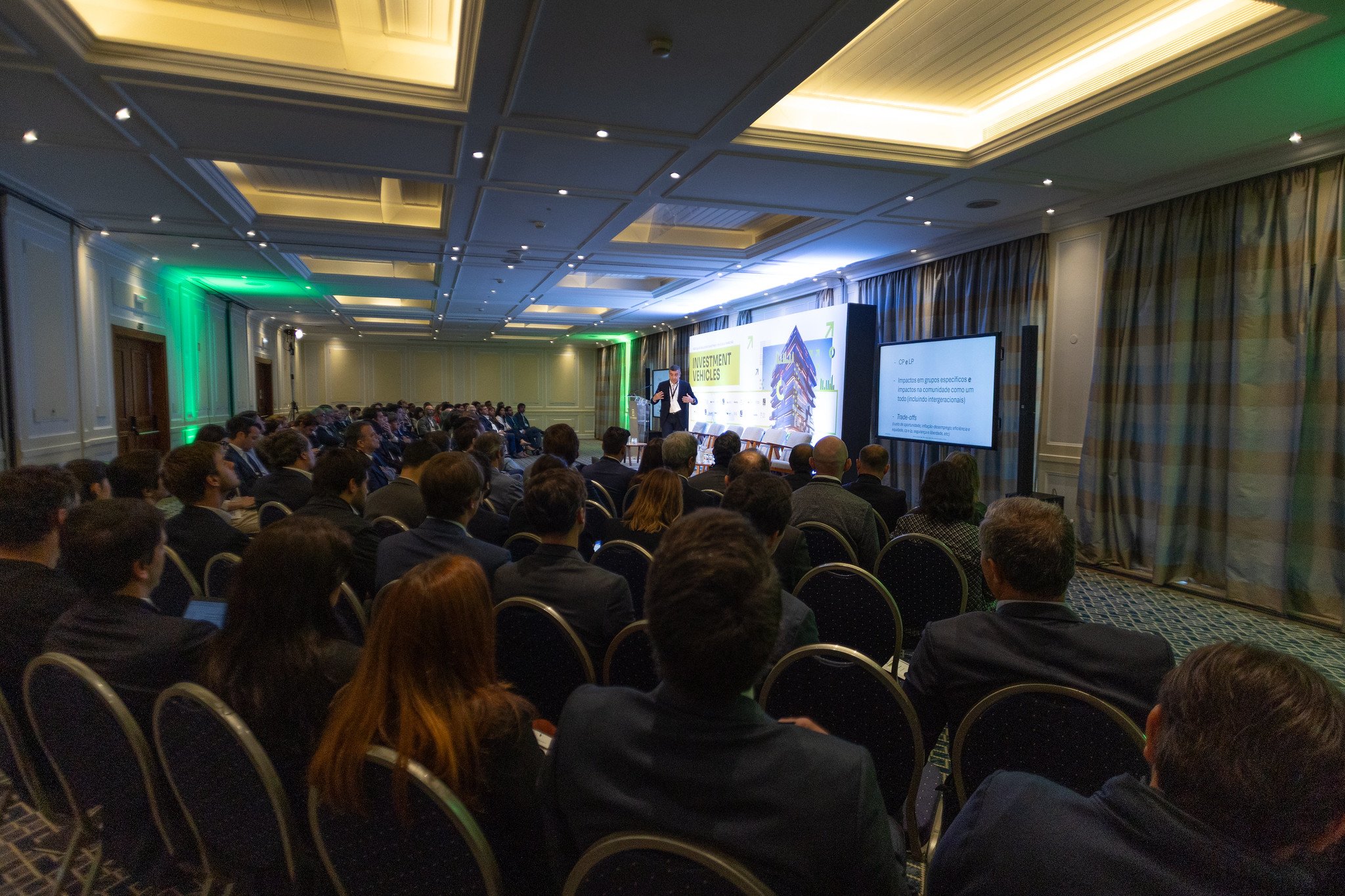
PORTUGUESE REAL ESTATE INVESTMENT VEHICLES & FINANCING
In a context of strong international instability, the ‘Portuguese Real Estate Investment Vehicles & Financing’ conference, which took place the 23rd of May at the Pestana Palace Hotel in Lisbon, opened with an analysis of the global economic situation, focusing on the factors that could shape investment decisions in Portugal in 2025. The direction of the government's economic policy was also in focus, in a discussion marked by international volatility.
António Alvarenga, professor at Nova SBE, international consultant and researcher, opened the conference with a reflection on the future and macroeconomic challenges. He began by saying that ‘we work on the future, which doesn't really exist, [future] exists only because we believe in it. For those working on this transformation, it's interesting to live in these times where everyone talks about the turmoil future,’ he reflected. In his analysis, ‘the future falls on us through expectations. We make decisions based on expectations, we invest based on expectations, and so we can't escape them, we have to pay attention to them, understand how they work.’
In the field of investment and finance, António Alvarenga said that ‘it's always a question of trade-offs’. He highlighted several archetypes that mould the way we think about the future: ‘that of continuation, that of unsustainability and collapse, that of control and the need to discipline the future, and that of techno-optimism’. For the keynote speaker, it is essential to understand whether investment scenarios take on any of these models, because ‘studying them and being aware of them is a way of building the future’.
On the other hand, he questioned whether ‘archetypes are useful, they are a way of organising reality, of looking at the world, but do they facilitate decision-making? It depends,’ warning that ’not everything changes at the same speed. We can't be overshadowed by the speed of technology when we look at the evolution of governance, for example.’ António Alvarenga added that ‘we are more sensitive to fast changes, but slow and structural changes have usually the higher impact’.
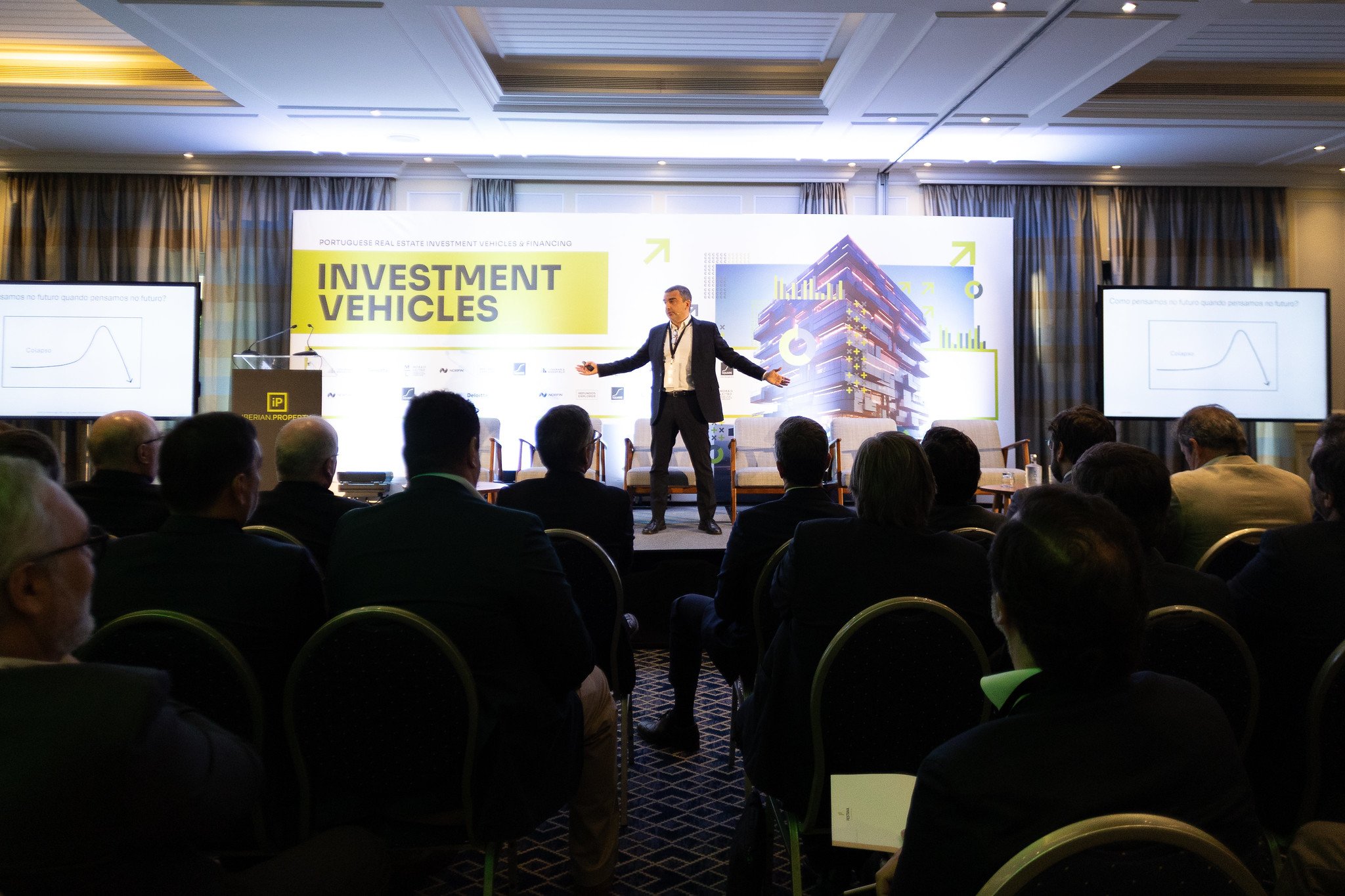
"Managing risks is relatively easy, because risk gives us probability. The problem is that the new uncertainties don't give us mathematical data"
On the economic front, he emphasised the transition from a paradigm of risk to one of uncertainty. ‘The 20th century was the century of risk, of big industries, of physical investment in infrastructure. Managing risks is relatively easy, because risk gives us probability. The problem is that the new uncertainties don't give us mathematical data.’ For the financial sector, he emphasised, ‘the risks they face today are structural uncertainties, whose probability is not given by the event, because it doesn't happen often enough’.
António Alvarenga's international analysis was marked by realism and some concern. The US, he said, is ‘in a unique situation: brutal debt, inflationary pressures’, but even so ‘it's possible that it will continue with interesting economic growth’. Regarding China, he was adamant that ‘it shouldn't return to the old levels of growth’. Europe, on the other hand, ‘is more predictable, because it's stagnating. It would be a surprise if it suddenly started to grow,’ he said. ‘Slow to decide, to innovate and to replicate technology’, Europe, he said, continues to depend on Germany, but the German scenario is worrying, since “it's in a technical recession, the government wasn't approved the first time round, there's a big energy transition cost, an ageing population and it hasn't caught up with the technology train”.
As for financing costs, he warned that in 2025, ‘everything looks very good, but we have the increase in debt issuance, it's never been so big, 40 per cent matures in 2027, we're going to see a lot of refinancing movements.’ Despite trade tensions and the growing interdependence of central banks, ‘money has been flowing in’, but the sustainability of this flow is increasingly uncertain.
"Everything is ‘more or less fine’ in Portugal"
On the environmental front, he was blunt, saying that ‘with climate change, we're going to be a desert, we're going to lose coastline. Will there be soil between the coast and the N1?’. He also asked: ‘Who manages carbon, when property accounts for between 40% and 45% of emissions?’. He also warned about the limits of investment, because ‘you can't invest in everything, it has to be “future proof”. There are ‘fossil houses’ that may not be able to go on the market without very expensive conversion.’
In the field of technology, he stressed the urgency of industrialising the sector: ‘You can't keep building houses with scaffolding. We need productivity increases with industrialisation; it's one of the sectors with the biggest productivity increases.’ With regard to artificial intelligence, ‘algorithms are gaining confidence, because AI may not be right, but at least it's not fooling me’.
Regarding Portugal, ‘everything is “more or less fine”: wages are rising, tourism is incredible and monetary policy is more flexible.’ However, he pointed out several weaknesses, including ‘difficult taxation, slow justice, a rigid labour market, a very ageing population, a serious social security problem, we are one of the least productive in Europe and very exposed to a few countries’. Finally, he left a direct criticism of the application of the PRR, emphasising that ‘I don't understand why the PRR has to go to companies and not to the state’.
Macro Events are always giving us food for thought
The first roundtable of the conference, moderated by Manuel Puerta da Costa, President of APAF and chairman of the conference, brought together Óscar Afonso, full professor at the Faculty of Economics of the University of Porto, economist Cristina Casalinho, and Luís Mota Duarte, deputy CEO and executive director of investment management at Sonae Sierra, in a debate centred on the structural challenges of the Portuguese economy, the need for reforms and the opportunities in the real estate sector.
Óscar Afonso drew a bleak picture of the evolution of national economic growth in recent decades. ‘We grew until the year 2000, and from then on we stopped. An annual average of 1% from 1999 to 2023, doubling GDP after 70 years.’ Despite recognising a more expressive momentary growth, he attributed it to cyclical factors such as the PRR and tourism, warning that ‘after this phase of implementing the PRR we will resume our natural trajectory’. To change this course, he advocated urgent structural reforms: ‘if we want to grow in terms of potential GDP, we have to reform. Unless we want our young people to continue wanting to emigrate.’

Cristina Casalinho countered with a more optimistic approach, although she was aware of the obstacles. ‘These narratives don't work. If we say that our challenges are too demanding, that turns us off and discourages us from changing.’ He preferred to focus on the construction sector, which, he recalled, ‘was one of the sectors that grew most significantly and even caused problems before the financial crisis,’ at the time accounting for around 12 to 13 per cent of GDP. In the meantime, ‘the level of indebtedness of companies and families has fallen significantly. This means that companies have made a big effort to make themselves viable, and a large part of their investment is no longer dependent on bank credit, for example. It has one of the lowest levels of profitability, which is why it's not growing any more.’
The economist also emphasised the contribution of exports to GDP growth, especially in the agri-food and agricultural sectors. Even so, she pointed out structural weaknesses: ‘we have insipid capital markets, which is a brutal handicap for the growth of the productive sector. We don't have pension funds, we don't have medium- to long-term financing.’
"Portugal has been perceived as high risk, but it's really not. We even have a lot of stability compared to other markets"
On the other hand, Luís Mota Duarte emphasised the importance of a constructive outlook, considering that ‘there is a lack of optimists in Portugal. We're like never before, public accounts are fine, disposable income is fine, the economy is growing’. In his view, the country is experiencing a favourable moment and the focus should be on creating the conditions to maintain growth, namely with investment in infrastructure. ‘Portugal has been perceived as high risk, but it's really not. We even have a lot of stability compared to other markets.’
Regarding the housing market, he recognised the challenges, stressing that ‘prices have grown much more than the economy, despite starting from a very low margin’. He also considered that, although society needs Build-to-Rent (BTR) more, ‘it's much more attractive to build Build-to-Sell (BTS)’. In this sense, ‘we can all do more, we could get a group of these economic agents together to create more housing, while still being profitable, and the state would certainly contribute to an initiative like this’. At Sierra, ‘we're trying to do some things, with the awareness of a lower return. I think real estate often waits for the state to sort things out, but in the meantime we can all do much more.’
"A lot of labour capacity in the construction sector has been absorbed by tourism or agriculture, which shows that entrepreneurs respond to stimuli"
In the same vein, Cristina Casalinho warned that ‘we have excess demand, although we still have more dwellings per inhabitant than in the EU, we have a distribution problem. It's not just the placement of new homes, it's the revalorisation of degraded urban areas.’ Construction ‘will continue to face competitiveness challenges, especially if we consider environmental requirements. The response will have to be demanding, especially in terms of profitability.’
Óscar Afonso emphasised that ‘we need to stimulate new construction, but also the rental market. It can be both an engine and an obstacle if it diverts resources from other sectors, or if it doesn't build at all, keeping the price so high.’ He also pointed to decentralisation as an instrument for relieving the pressure on housing and proposed concrete measures, including the IRC ‘which should be reduced to generate more growth. The state should continue to reform and free up resources to allow for more investment.’
In agreement, Cristina Casalinho stressed that ‘IRC must be simplified and stabilised, without major changes’. She identified a structural misalignment in terms of public employment, where ‘the public administration has been used to absorb labour. If we want a more digitalised, more efficient public administration, we'll have fewer people, and better paid people.’ Luís Mota Duarte said that ‘paying taxes isn't bad, the problem is where those taxes are used’. For the head of Sierra, the biggest obstacle is unpredictability, and ‘there is a discount for uncertainty almost. Stability and transparency is the most important thing in terms of taxation’.
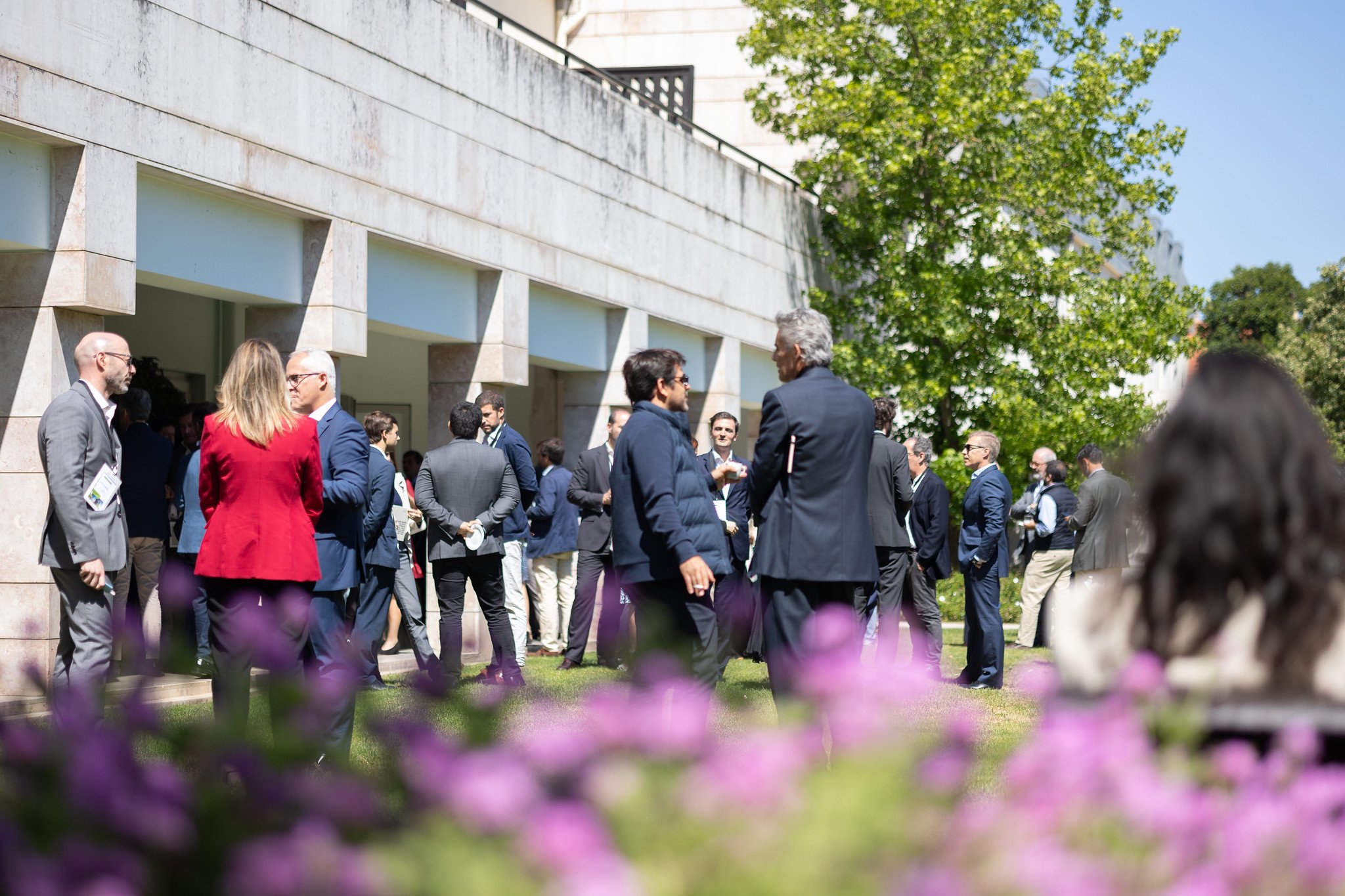
Alternative financing is growing and there is greater appetite
After a networking moment, the second session of the conference centred on the question ‘Is leverage from the Banking sector and Capital markets now more available?’. The debate highlighted the improvements and weaknesses in the institutional credit market, particularly in the current context of falling interest rates. Experts analysed how domestic and foreign investment vehicles are taking advantage of new sources of funding, while also highlighting the growing role of capital markets in the future of the real estate sector.
Through a keynote presentation, Paulo Sarmento, Head of Transaction Services at Cushman & Wakefield Portugal, began by highlighting the main dynamics that are marking access to credit in the property sector. Starting with the scarcity of prime opportunities, he emphasised that ‘prime lending opportunities are few and there is a lot of competition’, while also noting that ‘debt operations are growing, the cost of short-term debt is falling and non-bank players are becoming more important’. In this context, he said that ‘the trend now will be for interest rates to fall’. He noted that there is an active demand for financing, which in his view reflects market confidence: ‘there is a lot of demand for credit, which means that companies believe in the prices that have been set’.
However, he warned that the new regulatory framework will impose additional challenges. ‘Basel IV will make banks more demanding and will have an impact on property loans,’ he said. In this panorama, new financial entities are gaining ground. Paulo Sarmento pointed out that they ‘have more flexibility than banks, more creative and diversified ways’, adding that pension funds and insurance companies, historically conservative, ‘are taking on an important role in property lending at European level’.
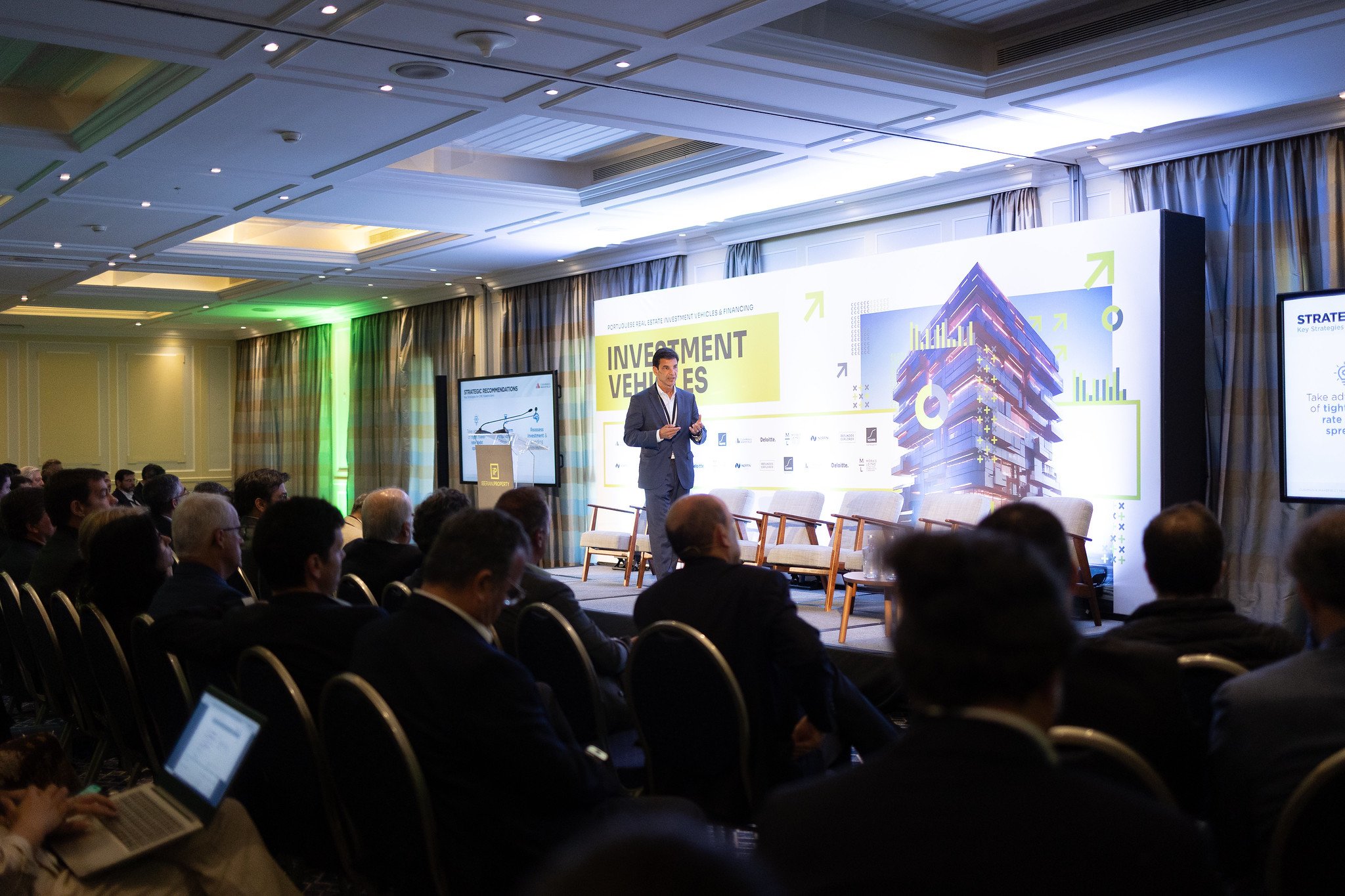
Increased competition between funding organisations requires greater strategic clarity, and ‘it's important to adopt themes of conviction, choose the risk profile of transactions, and not let ourselves be affected by sporadic news. These are the investors who are most successful, particularly in fundraising,’ he said.
With regard to the Portuguese market, ‘we have investors of all kinds, foreign, local, local banks, foreigners, we're starting to have insurance companies’. However, he also pointed out structural limitations: ‘we don't have a very strong secondary market for debt transfer operations’, explaining that ‘the deals are relatively small and often don't justify the setup costs’. He added that ‘information is fragmented and legal issues can take a long time’.
Despite some recent dynamism, he was clear in saying that ‘activity is growing, but remains relatively limited compared to other EU jurisdictions’. He also pointed out that ‘we are a country with a small capital market, and the market is evolving’. To summarise, he left the main point of his contribution: ‘alternative financing is growing, and there is greater appetite’.
"Alternative instruments are not competitors"
The roundtable that followed brought together representatives from some of the main financial institutions operating in Portugal and Europe. Moderated by Ricardo Reis, partner at Deloitte, the debate included Francisco Cary, Member of the Board, Caixa Geral de Depósitos, Luís Ribeiro, Member of the Board, Novobanco, João Nuno Palma, Vice President of the Executive Board, Millennium BCP, David Campos e Cunha, Head of Credit Ventures, Invesment Management, Sonae Sierra, and Alberto Sanchez, Director, Corporate Lending for Europe at BTG Pactual.
Francisco Cary opened the debate by emphasising that ‘the market is very competitive, but with different characteristics than in the past’. Luís Ribeiro emphasised that ‘alternative instruments are not competitors, they don't have the same type of risks or the same type of remuneration. There's room for everyone. For the head of Novobanco, there is now greater maturity in the sector's practices, and ‘we have much clearer structuring policies, we have a global vision’. Even so, he warned that ‘excess liquidity also has its risks of heating up the market and some fund structures lack transparency’. For him, the market ‘works more like a complementary system than one of direct competition’.
João Nuno Palma reinforced this idea, emphasising that ‘knowledge is central to our offer, to the client and to the sector we are financing. We don't finance transactions, we finance relationships’. He said that ‘as we have more observations with each client, we deepen our relationship and then we are quicker to approve new projects’, adding that the alternative offer is ‘complementary and not competing’.
On the other hand, David Campos e Cunha explained that Sonae Sierra ‘is another player in the sector. We identified an opportunity to enter the property credit area, and we made this agreement with BTG, so that we can invest in the sector not only through equity, but also credit.’ The operation's differential lies in its specialised knowledge, since ‘we bring our sectoral and geographical knowledge to the table. We're almost an advisor, we go one step further and have the extra comfort of co-investment.’
"The property sector is very hot, particularly in Spain and Portugal"
Alberto Sanchez highlighted the dynamism of the real estate sector in Portugal and Spain, noting that ‘we have noticed that the real estate sector is very hot, particularly in Spain and Portugal’. However, he recognised that ‘there are many projects that need financing, and some banks don't like to finance, such as land in premium areas of cities’. In these cases, organisations like BTG see an opportunity. ‘Very good projects are well supported by local banks, yes, and then we can't participate, but there is room.’ The partnership with Sierra is, according to Sanchez, a way of ‘leveraging technical knowledge about European markets’.
João Nuno Palma spoke again to emphasise the importance of trust and local knowledge in financing decisions. ‘We come in as a senior debt financier, which has the biggest guarantees and the least prospects of gain. We have to know the place, we have to trust it. If not, we don't finance,’ he emphasised, adding that ’that's why these operators are very welcome. By financing with an appetite and conditions that we don't have, this complementarity is very positive.’
Francisco Cary also emphasised the challenges of articulating different levels of financing, particularly between debt and equity. ‘When it comes to equity, it's rare for us to do without mortgaging the asset. The trend is towards subordinated debt, and that's where the issue of collateral management comes in, because this debt is also ahead of equity.’
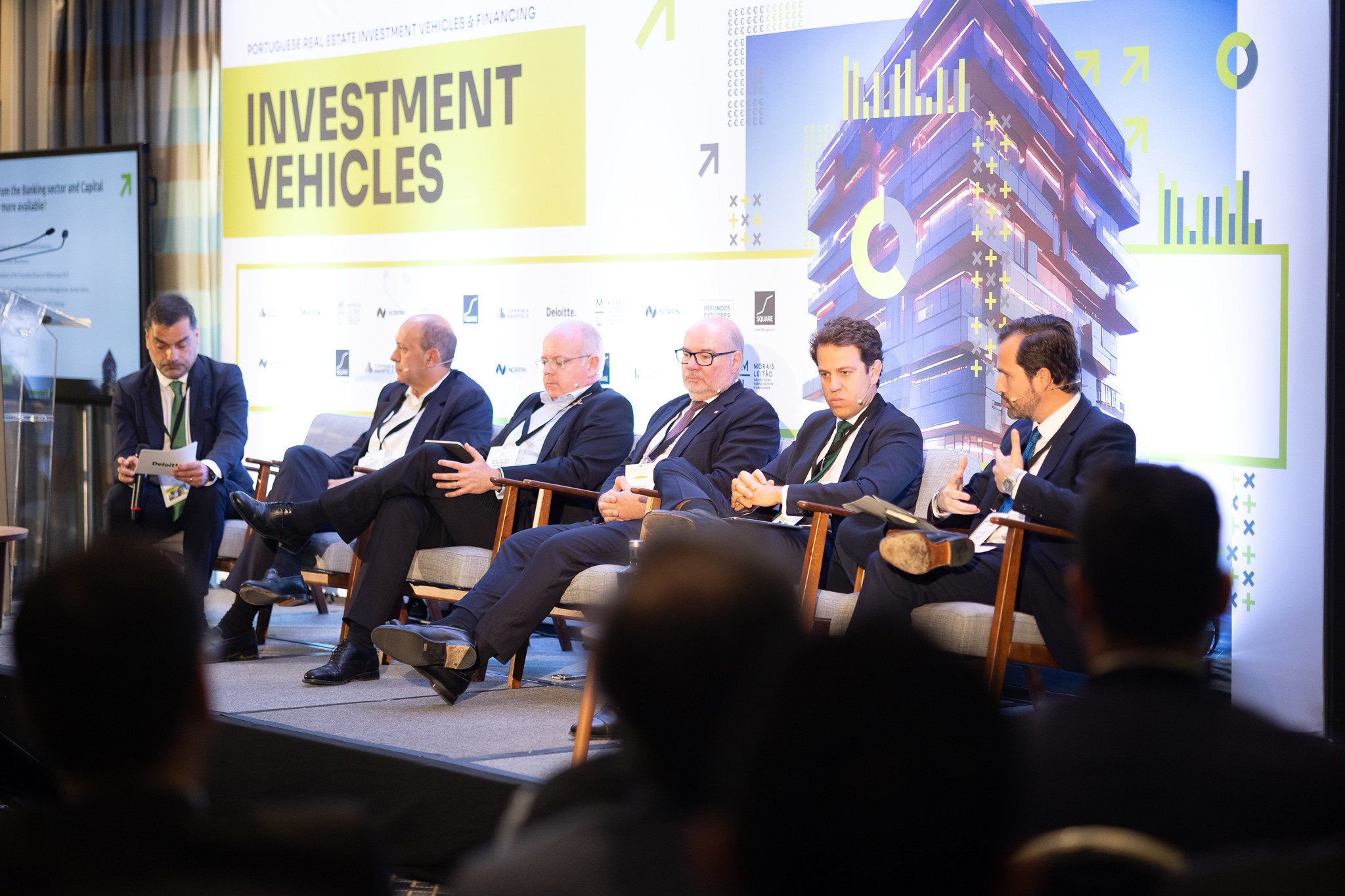
Investment funds will be a mandatory vehicle in new housing programmes
The third and final session of the Portuguese Real Estate Investment Vehicles & Financing conference focused on innovation in property investment vehicles in Portugal. Experts in the sector analysed emerging trends and debated the extent to which the national market is creating its own solutions or merely following models imported from other European jurisdictions. The growing importance of investment funds and private equity was also highlighted in a debate that emphasised the increasingly decisive role of regulation in this segment.
Frederico Arruda, Member of the Board at APFIPP & Partner at Refundos Explorer, began by emphasising that ‘2005 was a turning point for closed-end funds’, marking the beginning of a new cycle in the sector, followed by ‘a cycle of tax changes’. In 2015, with the introduction of a new tax regime ‘equalised with the whole of Europe, taxed on exit’, the sector was given a new lease of life, registering ‘exponential growth coinciding with regulatory stability’.
According to him, Portugal has ‘a very strong track record in terms of corporate investment’ and, despite the ‘many associated risks, namely the rental law’, the country today has strong potential: ‘Looking at Europe, Portugal has potential and can aspire to be a platform for property investment. We've seen good growth in recent years.’
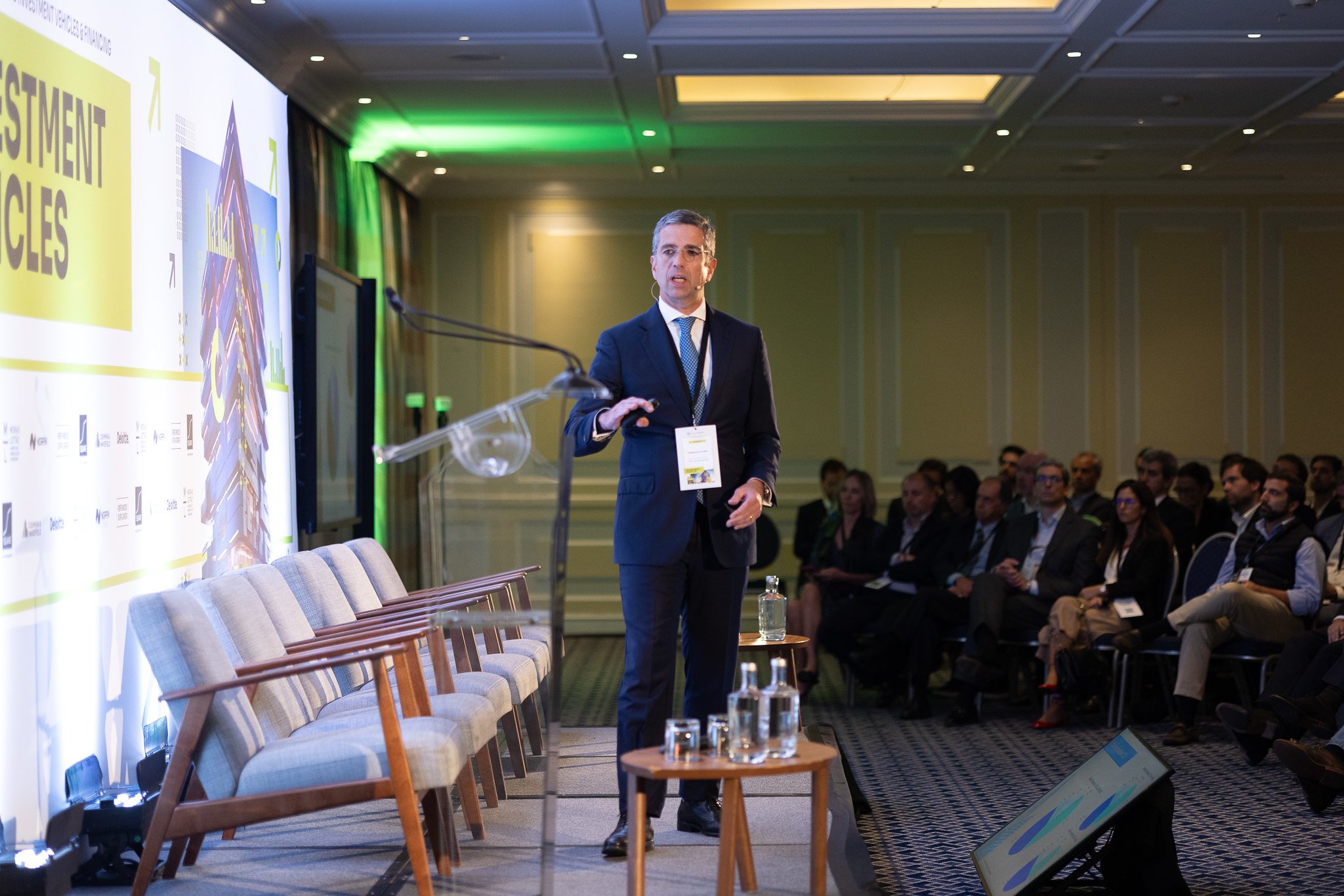
Frederico Arruda also pointed out that the market has evolved from a context dominated by companies and funds, which ‘didn't attract or satisfy a certain type of client’. The introduction of the SIC regime was, in this sense, an important step. ‘The wheel wasn't invented, it was just implemented so that we could be competitive with the rest of Europe. It was innovative for Portugal, and it was complementary.’ In his view, this is ‘the vehicle that is best positioned to solve the housing problem’, although he admits that ‘we're going to have to change the framework’. For him, ‘this gain in confidence comes from regulatory stability’, which he considers essential for attracting investment: ‘without it, you can't attract investment. It has played a very good role.
Confidence gains come from regulatory stability
The closing panel discussion, moderated by Marisa Larguinho, Partner at Morais Leitão, brought together representatives from the CMVM, Square Asset Management, Norfin and Caixa Gestão de Ativos, in a conversation centred on the challenges and opportunities for real estate investment vehicles in Portugal, in light of the new regulatory framework and market requirements.
Carla Mãe, director of supervision at the CMVM, began by emphasising that ‘at the CMVM we reflect on innovation in the sector on a regular basis’ and that, in asset management, ‘our concern is to understand the specificities of the national market and whether or not it is justified to have some differentiators’. To this end, he revealed that the regulator has endeavoured to ‘eliminate elements that are more demanding for the national reality than for the European reality’ and reinforced the objective of ‘making Portugal competitive’.
Among the measures under study, he emphasised the importance of ‘allowing the category of alternative funds without a pre-category of assets’ and highlighted another differentiating aspect, ‘the fact that funds intended exclusively for traditional managers don't have to have a custodian bank, we understand that investors play the role of supervisor’.
On the other hand, Luís Souto, Executive Director of Square Asset Management, said that ‘we've had funds on our market for over 30 years, we have experience that some European markets don't have’. For him, open-ended funds benefit from the ‘best European regime in Portugal’, working as ‘a complement to equity’. He also emphasised that ‘we don't have small savers who traditionally have an appetite for volatility’ and that ‘there is a very ingrained idea that volatility is a big risk’. In this context, ‘the other complement provided by the funds removes some of this volatility from the market’, which is ‘an important factor for growth on the equity side’.
Francisco Sottomayor, CEO of Norfin, considered that ‘the fact that we are a small market no longer has the barriers it used to have’, and that ‘this simplification journey is being done well and contributes to that’. He emphasised that ‘we have a very competent industry that can compete with anyone, a regulator that works, transparency, but the ecosystem around this core doesn't work so well.’ Even so, he was cautious about the potential for attracting foreign investment. ‘With the current constraints, I doubt that investors will move away from their traditional markets to come to Portugal’ and ’I don't think there's any potential for relocating investments to Portugal. Those who invest here have interesting and sufficient structures, and most of SIC's capital is foreign.’ Despite this, ’we're still an attractive market, the fundamentals are here.’
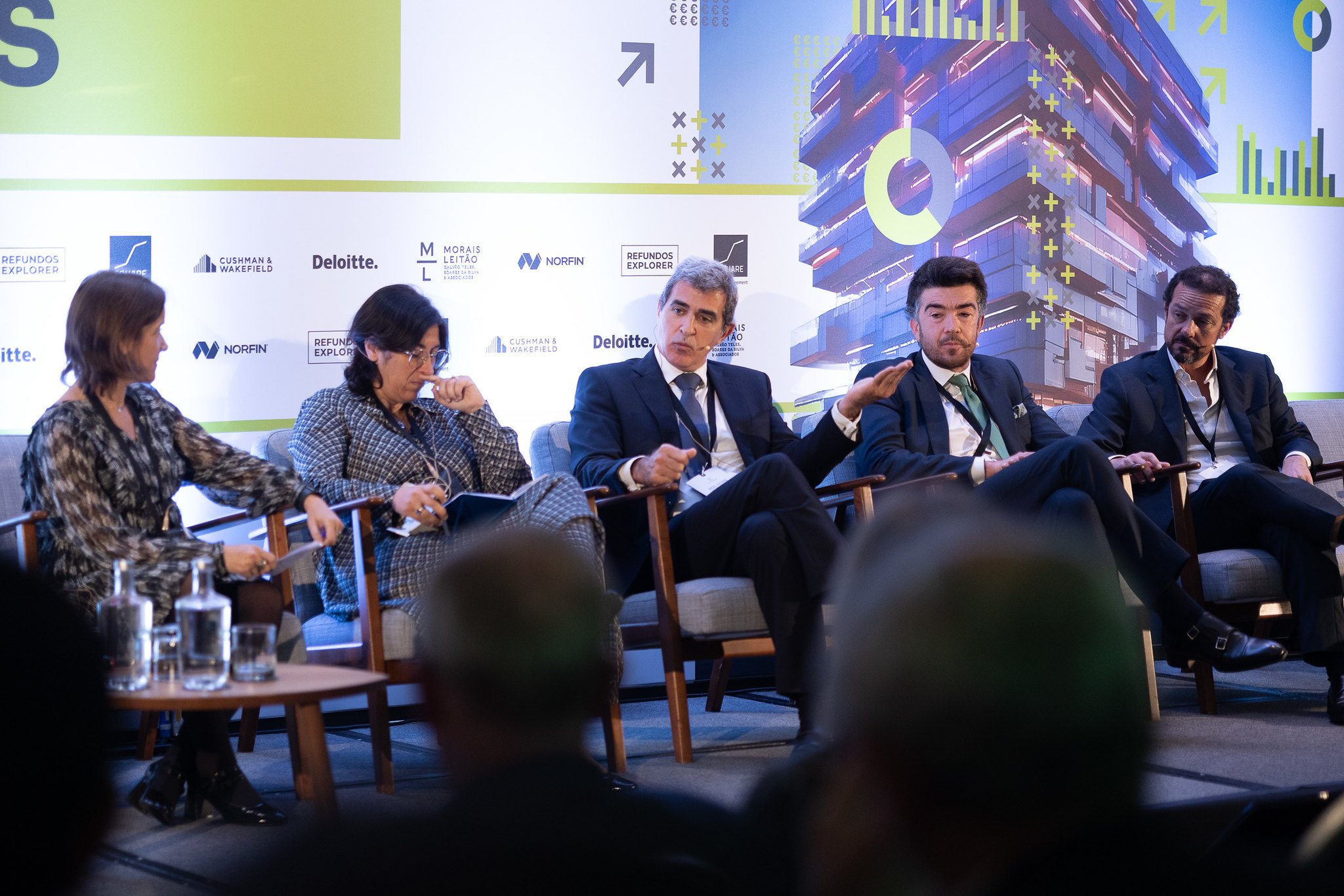
Regarding its role in housing, Francisco Sottomayor considered that ‘this sector can play an important role in the issue of the crisis of access to housing (certain types of housing)’, adding that ‘this type of capital can adapt easily’. He also mentioned that ‘the EU is preparing a strategy for the housing sector’ and that ‘we have a European housing problem, I think that part of these affordable housing projects can benefit from these instruments’.
Sérgio Meireles, Member of the Executive Committee of Caixa Gestão de Ativos, noted that ‘we have been walking alongside the regulator, and we already have a developed industry with very interesting results’. He recalled that ‘funds emerged in 1987’ and that there is a growing concern with ‘raising individual capital’, emphasising that ‘the investment needed for the new infrastructures will also have to raise individual capital’. In terms of solidity, he said that ‘we are highly capitalised, and that's not an issue for us at the moment’. He also admitted that ‘it's true that we don't have as much liquidity or literacy and willingness to invest in vehicles like SIGIs’, but ‘with concertation, we can get there’. He recognised that ‘the regime needs some adjustments’ and that ‘we've had situations such as the pandemic, inflation and interest rates’, but reiterated that ‘that design doesn't exist here today’.
Carla Mãe made one last remark, emphasising that ‘one of our flagships is regulatory stability’, but warned that ‘we're going to have to revise the RGA because a new European directive has come in and we have to transpose it. So, yes, stability, but there are moments we can't control.’ Francisco Sottomayor agreed, saying that ‘revising the RGA is a very positive change. It was very well received,’ adding that “it's normal for the regulator's own mentality to take some time to adjust”.
By consensus, everyone recognised the importance of funds in the new cycle. For Luís Souto, investment funds ‘will be an obligatory vehicle in all these new housing programmes. We're really going to be there’. Sérgio Meireles emphasised that ‘yes, it's indisputable, and they are one of the best tools for achieving this goal’.
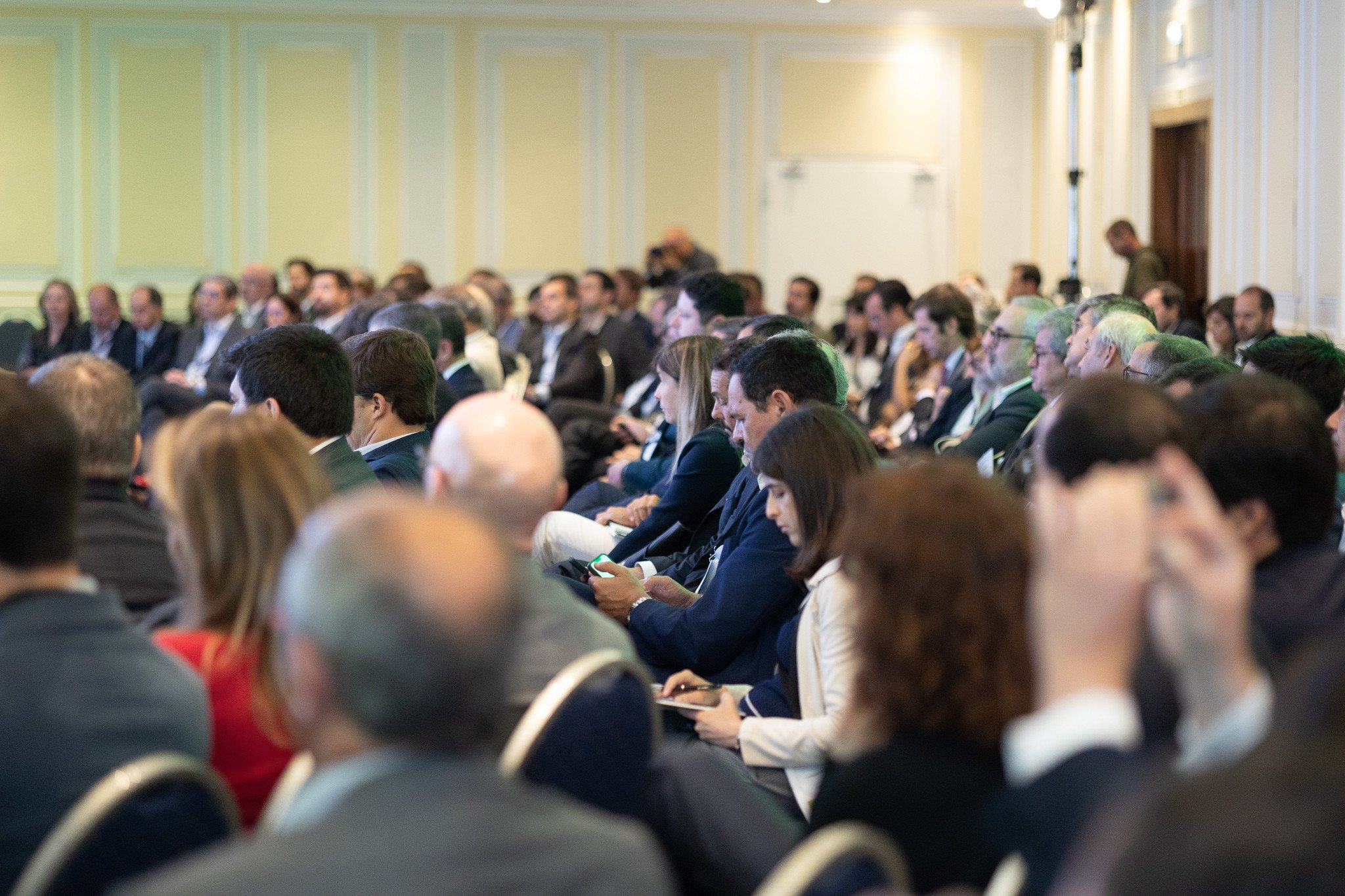
Iberian Property would like to take the chance to recognize all the companies and entities who supported the PORTUGUESE REAL ESTATE INVESTMENT VEHICLES & FINANCING this year, and which hopefully will continue contributing to the success of such an initiative:
Cushman & Wakefield, Deloitte, Morais Leitão, Norfin, Refundos Explorer, and Square Asset Management.
